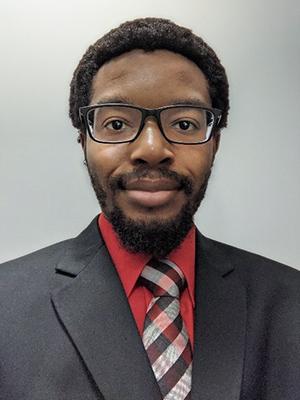
Byron Hayes, PhD, a recent graduate of the Pathology Graduate PhD program, has been awarded a position as a scholar within the Duke Multidisciplinary K12 Urologic Research Career Development Program (Duke KURe Program).
Dr. Hayes joined Dr. Soman Abraham’s lab to develop his dissertation project when he arrived at Duke after his undergraduate studies at Virginia Tech. He completed his doctorate degree in 2021 with work focused on understanding the functional impact of recurrent urinary tract infection on bladder sensation and activity. He remained in the Abraham lab as a postdoctoral associate and was subsequently was awarded this position. Through this award, he will continue his research in studying links between recurrent urinary tract infections and bladder pain syndrome with the goal of becoming a leading independent researcher in the field.
Currently, Dr. Hayes is pursuing studies focused on further defining the mechanisms behind bladder pain syndrome (BPS) following recurrent urinary tract infection (rUTI). Treatment options for BPS are limited due to poor understanding of disease pathogenesis. During his graduate studies, Dr. Hayes developed a novel animal BPS model based on rUTIs that successfully displayed symptoms similar to those observed in clinical patients. Under the mentorship of Dr. Soman Abraham and Dr. J. Todd Purves, Dr. Hayes aims to leverage this model and other previous observations to find novel therapeutic targets for BPS patients.
The KURe is a K12 Institutional Career Development Grant that provides Scholars with career development training and support to develop the skills necessary to become outstanding independent investigators able to lead multidisciplinary research teams. The KURe seeks to recruit talented clinical, translational, and basic science researchers (MDs, Dos, PhDs, and MD/PhDs) from diverse disciplines who are interested in building an independent research career using collaborative, multidisciplinary approaches to benign urological research questions. Scholars receive salary support up to $100,000 per year for 75% of full professional effort (50% – 75% if a surgical specialty). Research and Career Development Support up to $40,000 per year will be provided for research supplies, equipment and technical personnel, tuition and fees related to didactic courses or career development, and travel to research meetings. Scholars are expected to publish and apply for independent grant funding by year 3. Maximum support is for 5 years.